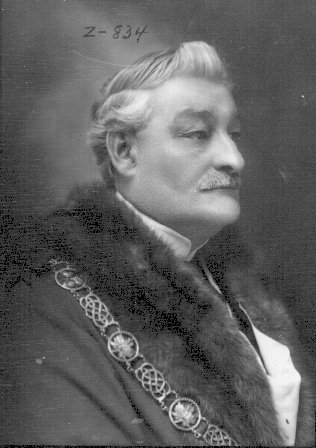Related Research Articles

Richard Lee Petty, nicknamed "the King", is an American former stock car racing driver who competed from 1958 to 1992 in the former NASCAR Grand National and Winston Cup Series, most notably driving the No. 43 Plymouth/Pontiac for Petty Enterprises. He is one of the members of the Petty racing family. He was the first driver to win the Cup Series championship seven times, while also winning a record 200 races during his career. This included winning the Daytona 500 a record seven times and winning a record 27 races in one season (1967).

Thomas Earl Petty was an American singer, songwriter, and guitarist. He was the leader and frontman of the rock bands Tom Petty and the Heartbreakers and Mudcrutch and a member of the late 1980s supergroup the Traveling Wilburys. He was also a successful solo artist.

Alamannia, or Alemania, was the kingdom established and inhabited by the Alemanni, a Germanic tribal confederation that had broken through the Roman limes in 213.

Médéric Martin was a Canadian politician and long-time Mayor of Montreal.

NGC 5291 is a system of interacting galaxies in the constellation Centaurus. It is surrounded by a collisional ring, containing a young and star-forming tidal dwarf galaxy, where dark matter has been detected.

Saint-Méry is a commune in the Seine-et-Marne department in the Île-de-France region in north-central France.

Marabou is a term of Haitian origin denoting Haitians of multiracial ancestry. The term comes originally from the African Marabouts. Marabous are mainly descended from intermingling between Africans, Europeans and Taino but may also have Indian and Chinese ancestry.

Médéric Martin Bridge is a viaduct-type bridge in Quebec, Canada that spans Rivière des Prairies between Montreal and Laval. It carries 8 lanes of Quebec Autoroute 15, including 1 reserved bus and carpooling lanes.
Vestralpus was an Alemannic petty king of the Bucinobantes in the 4th century AD. The Roman historian Ammianus Marcellinus reports that Julian crossed the Rhine at Mainz in 359 and concluded peace treaties with the Alemannic kings Vestralpus, Macrian, Hariobaudes, Urius, Ursicinus and Vadomarius after they had returned all Roman prisoners.
Hariobaudes was an Alemannic petty king in the 4th century AD. The Roman writer Ammianus Marcellinus reports that Julian crossed the Rhine at Mainz in 359 and concluded a peace treaty with the Alemannic kings Hariobaud, Macrian, Urius, Ursicinus, Vadomarius and Vestralpus after they agreed to return all prisoners.
Urius was an Alemannic petty king in the 4th century AD. The Roman writer Ammianus Marcellinus reports that Julian crossed the Rhine at Mainz in 359 and concluded a peace treaty with the Alemannic kings Urius, Hariobaudes, Macrian, Vadomarius, Ursicinus and Vestralpus.
Agenaric, also called Serapio, was an Alemannic prince in the 4th century. Agenaric was the son of petty king Mederic and the nephew of another petty king, Chnodomarius. In 357, together with his uncle, Agenaric commanded the Alemannic army at the Battle of Strasbourg, in which the Alemanni were defeated by Julian.
Gundomad or Gundomar, was an Alemannic petty king in the area around Breisgau, Germany in the 4th century. The Roman historian Ammianus Marcellinus reports that Gundomad, together with his brother Vadomarius, in 354 concluded a peace treaty at Augst after having been defeated in battle by emperor Constantius II. In 357, Gundomad was killed by his own people for having been to loyal to the Romans. They then made an uprising against emperor Julian.
Mederic may refer to:
Rando was an Alemannic petty king in the 4th century. In 368, Rando invaded the city Mogontiacum, where the Christian festival was being celebrated. Since Roman emperor Valentinian I was stationed at Trier with his troops, Rando was free to raid with impunity. After campaigning against the Brisgavi, who had been rendered leaderless after the murder of their king Vithicabius, Valentinian conducted a revenge campaign against Rando. Rando entrenched himself at a high-altitude fortress and continued his campaign against the Romans. In an ambush at the Battle of Solicinium, Rando almost succeeded in killing Valentinian. Rando's army, which had encamped on a towering mountain, was surrounded by Valentinian's forces. After the Romans scaled the northern slope the Alemanni fled taking heavy casualties.
Suomarius was an Alemannic petty king in the 4th century.
Vithicabius was an Alemannic petty king from 360 to 368. He was a son of Vadomarius, and succeeded his father as king after the latter had been banished to Hispania by emperor Julian. He had grown up in Roman custody. Ammianus Marcellinus describes Vithicabius as a physically weak, but a brave and aggressive leader. Although having promised Julian to maintain peace, Vithicabius continued raiding Roman territory. He was assassinated in 368 under Valentinian I by a bribed servant, but the Alemannic raids on Roman territory continued nevertheless.
W. Kohlhammer Verlag GmbH, or Kohlhammer Verlag, is a German publishing house headquartered in Stuttgart.
References
- Dieter Geuenich: Geschichte der Alemannen (Kohlhammer-Urban-Taschenbücher. 575). 2., überarbeitete Auflage. Kohlhammer Verlag, Stuttgart 2005, ISBN 3-17-018227-7. pp. 42-45